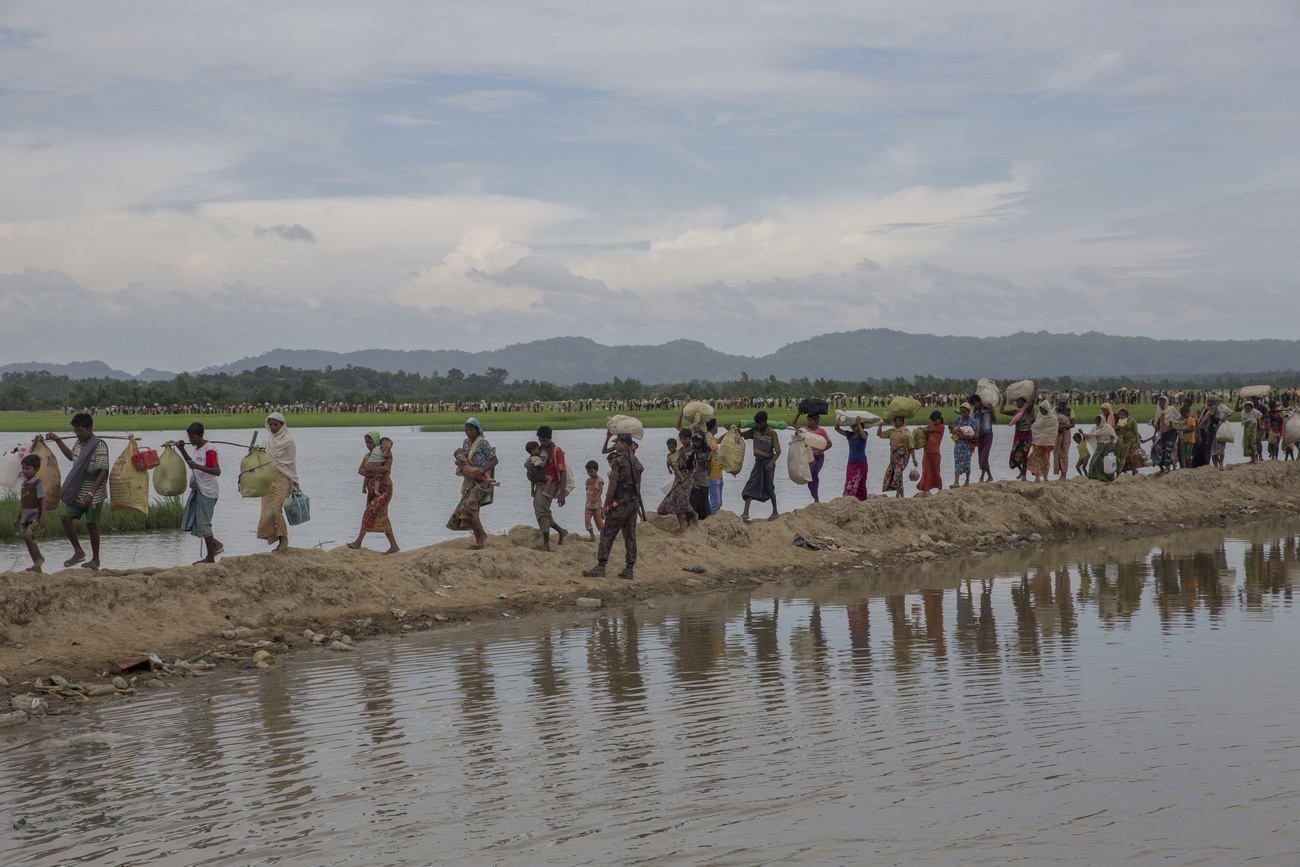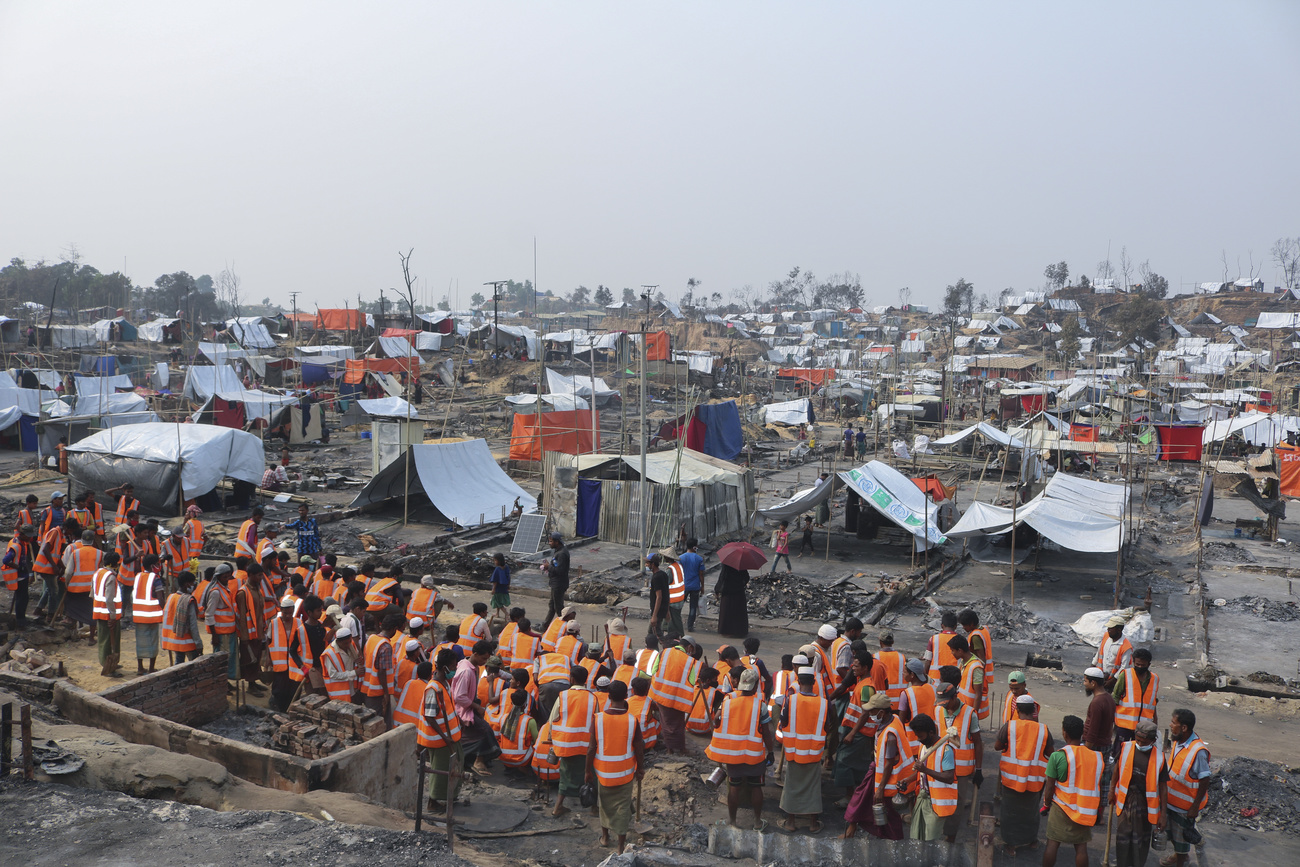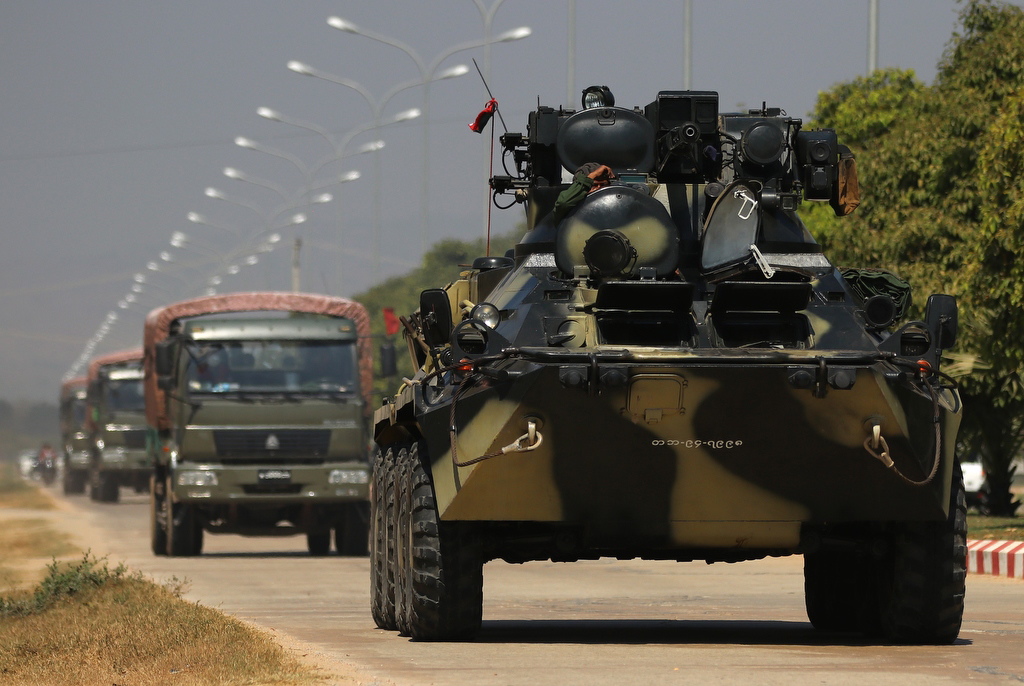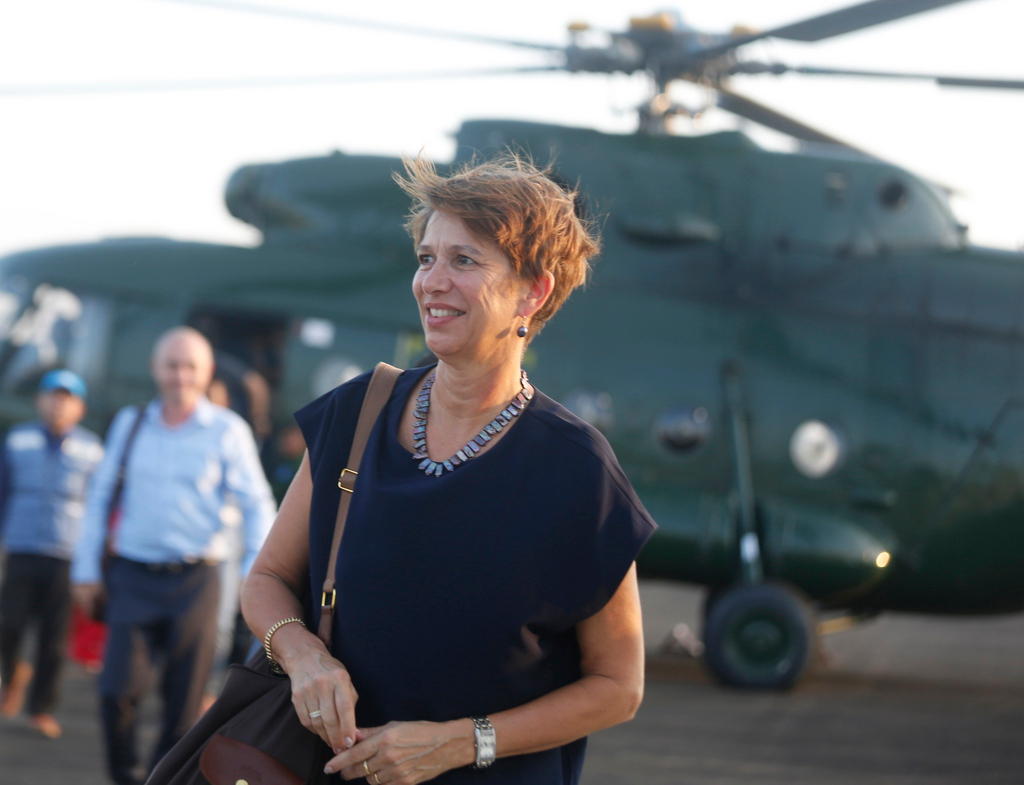Evidence-gathering boosts justice chances for Myanmar’s Rohingya

Five years after the Myanmar army crackdown that drove one million Rohingya refugees into neighbouring Bangladesh, they have not been able to return home and have not seen justice. But a United Nations body based in Geneva says it has gathered vast quantities of evidence on crimes in Myanmar and is sharing it with two international courts.
Since the February 2021 military coup, there is escalating evidence of crimes against humanity across Myanmar, according to the UN’s International Investigative Mechanism for Myanmar (IIMM) in its latest annual reportExternal link, published on August 9. “We’ve seen in some ways that many other groups around the country are experiencing similar problems to what happened against the Rohingya,” IIMM head Nicholas Koumjian told SWI swissinfo.ch. “We are talking about the burning of villages, for example, retaliation against the civilian populations for attacks by opposition forces.”
The IIMM was set up under a September 2018 decision of the UN Human Rights Council, with a mandate to collect and preserve evidence of the most serious of international crimes (genocide, crimes against humanity and war crimes) for future trials in international, regional or national courts. The UN has set up similar evidence-gathering for Syria and Sri Lanka. These initiatives are a UN response to situations where the veto powers of countries like Russia and China in the UN Security Council have blocked attempts to refer countries to the International Criminal Court (ICC).
Sharing evidence
Koumjian says the Myanmar situation is “very depressing and complicated”, but he notes that both the ICC and the International Court of Justice (ICJ) – the UN’s top court based in The Hague – have opened procedures and the IIMM has shared evidence with them. The ICC can prosecute individuals for serious crimes and has opened a probe for forced deportation as a possible crime against humanity. This is based on its jurisdiction in Bangladesh, since Myanmar is not an ICC member.
The ICJ deals with disputes between states. The Gambia brought a case against Myanmar in 2019, accusing it of committing genocide against the Rohingya. The tiny West African country brought the case under the 1948 Genocide Convention, which places an obligation on states to prevent and punish genocide. In July 2022, almost three years after the case was filed, the ICJ ruled that it had jurisdictionExternal link, dismissing arguments by Myanmar. The court can now start looking at the merits of the case, although that may still take years, Koumjian told swissinfo.ch.
“At the ICC, we’re cooperating with the office of the prosecutor, and we’re keeping them informed of our investigation,” he says. “They’ve made some requests for information, which we’ve shared with them. They also give us some idea of what they’re doing so we’re not going to step on each other’s toes, contacting the same individuals, for example.”
In the ICJ case, he says the IIMM received requests from both The Gambia and Myanmar back in 2019 and has shared some evidence with both sides. It can do this, he says, provided it deems the evidence relevant to the proceedings, does not put anyone in danger, and has the consent of those that gave the information.
More resources needed
The IIMM says that since it started operations three years ago it has collected more than three million information items from almost 200 sources. “This includes interview statements, documentation, videos, photographs, geospatial imagery and social media material,” its press releaseExternal link explains.
The challenge now is to analyse this mass of information, says Koumjian. “In some ways, we’re victims of our success in gathering evidence,” he told swissinfo.ch. “I never imagined when I started that we would have this amount of material. Most of that is in the Burmese language, so the demands on our language capacity are much greater than I thought. And since the coup we also have many people coming forward and offering evidence.”
He says the IIMM will be seeking more funding, although he declined to say how much. The mechanism is funded from the UN regular budget and also receives voluntary contributions from countries including Switzerland.
Koumjian recognises that with the Ukraine war and ongoing crises around the world, donors may be stretched. “Of course, the world’s attention, the headlines move on to the next crisis, but the million or so Rohingya that were forced to flee are living as refugees and continue in that state,” he says. “For them every day is another day of suffering. It’s important that there be accountability, people need to believe that there is international justice and that those who commit serious crimes should be held to account.”

In compliance with the JTI standards
More: SWI swissinfo.ch certified by the Journalism Trust Initiative

















You can find an overview of ongoing debates with our journalists here . Please join us!
If you want to start a conversation about a topic raised in this article or want to report factual errors, email us at english@swissinfo.ch.